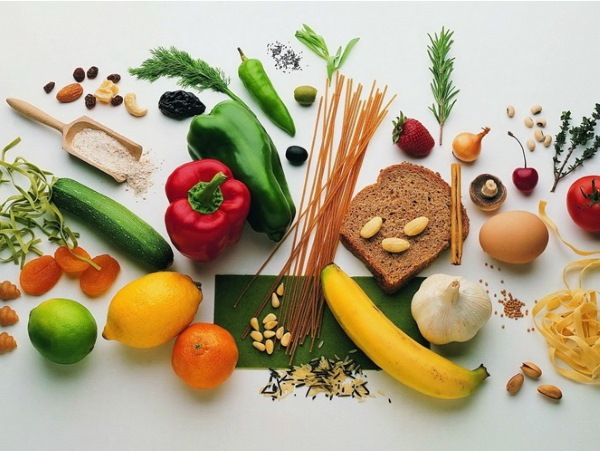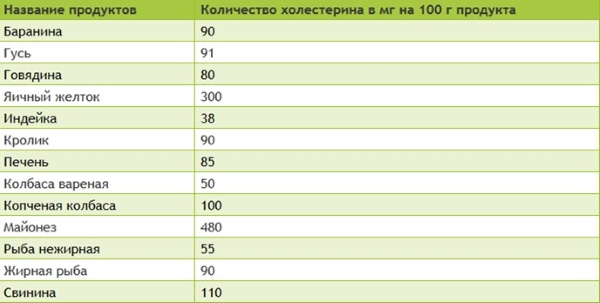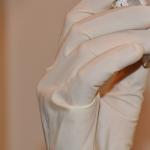Causes of high cholesterol
Many people wonder why blood cholesterol levels are elevated? Some believe that the main reason lies in abuse of foods high in cholesterol (fast food, margarine, canned food, shrimp, processed meat, cheese), but often the reasons for this phenomenon can be hidden much deeper and are more serious.The most common causes of high cholesterol:
- Hypertension;
- Obesity;
- Elderly age;
- Diabetes;
- Genetic predisposition;
- Cardiac ischemia;
- Reduced thyroid function;
- Cholelithiasis;
- Long-term use of immunosuppressants;
- Alcohol abuse;
- Wrong lifestyle and diet.
High HDL cholesterol
HDL is the so-called “good” cholesterol. This lipoprotein helps the arteries get rid of cholesterol buildup. HDL has a positive effect on the human body: it transports cholesterol to the liver, prevents the formation of cholesterol plaques, “cleans” arteries and prevents their blockage.But many patients are faced with the fact that their HDL cholesterol is elevated, and they do not know what this means. Although HDL cholesterol helps the body, its increase may indicate diseases such as:
- Hereditary hyper-alpha lipoproteinemia;
- Primary cirrhosis of the liver;
- Chronic hepatitis;
- Alcoholism;
- Sudden weight loss and stress.
Having found out that cholesterol is elevated, it is recommended to retake the test to be sure. If the results for the second time show numbers that are not normal, then the cause of high cholesterol needs to be correctly established. Only in this way can you choose a truly effective and correct treatment.
How to eat with high cholesterol?
If you have high cholesterol, it is important to adjust your diet by adhering to the following recommendations:- Omega-3 fats affect blood cholesterol levels and help reduce them. Therefore, you need to include foods that contain it in your diet. It is better to give preference fatty fish (stellate sturgeon, sturgeon, eel, salmon, lamprey);
- IN vegetable oils There is no cholesterol at all, but in order to benefit from them, they do not need to be used after cooking. They are suitable for dressing salads and cereals;
- Nuts - This is a storehouse of monounsaturated fatty acids that reduce the concentration of “bad” cholesterol. So, 10 g of cashews, almonds or hazelnuts per day are simply necessary for those who suffer from high cholesterol;
- Deny dairy products not necessarily, you just need to give preference to those products that have a low mass fraction of fat. The same goes for meat - it should be low-fat varieties: chicken, turkey, rabbit;
- If you can’t eliminate it from your diet bread , then preference should be given only to those products that are baked from wholemeal flour. This rule also applies to pasta which must be made from durum wheat;
- Fruits and vegetables on the menu of a patient with high cholesterol, different ones are allowed, but priority is given to green leafy vegetables: cabbage, spinach, broccoli, sorrel, legumes;
- Whole grain porridge , for example, oatmeal or buckwheat is the best breakfast for a person with high cholesterol. You can get double the benefits from the first meal if you season the porridge with vegetable oil;
- For those who cannot imagine life without sweet but suffers from high cholesterol, you can recommend fruit ice cream, marmalade, marshmallows and homemade jam for dessert;
- Concerning drinks If you have high cholesterol, then preference should be given to herbal tea. You can drink coffee, but without cream (low-fat milk as a substitute), mineral water, freshly squeezed juices, fruit drinks.

The most important thing when it comes to eating for high cholesterol is how the food you eat is prepared. It is best to steam dishes or bake them in the oven. But frying is strictly forbidden.
List of prohibited foods for high cholesterol
To reduce blood cholesterol, you need to remove from your diet all foods that contain trans fatty acids, which increase the level of bad “cholesterol”, reducing the concentration of “good” cholesterol. In turn, this increases the risk of coronary artery disease.
The following foods are on the top list for high cholesterol:
- Butter;
- French fries;
- Chips and crackers;
- Alcohol;
- Chocolate;
- Confectionery products (waffles, cookies, buns, cakes, etc.);
- Fried foods;
- Lard and bacon;
- Sausage and frankfurters;
- Ribs, brisket and pork.
You need to adjust your diet so that it contains as many foods as possible recommended for high cholesterol and as few as possible of those that are on the stop list (ideally, they should be excluded altogether).
Daily menu for high cholesterol
It is sometimes difficult to cope with the correction of your diet on your own. Therefore, doctors prescribe special diets to their patients. We suggest you familiarize yourself with a sample daily menu for people with high cholesterol.- Breakfast: 170 grams of buckwheat porridge (seasoned with vegetable oil), one apple or half an orange and tea or coffee without sweetener;
- Lunch: 260 grams of cucumber and tomato salad, seasoned with vegetable oil, 200 milliliters of freshly squeezed carrot juice;
- Dinner: Low-fat vegetable soup (300 milliliters), steamed chicken cutlets (150 grams) and 200-250 milliliters of orange juice (natural, without sugar);
- Afternoon snack: 130 grams of oatmeal and 200 milliliters of natural apple juice.
- Dinner: Grilled or oven-baked fish (not in batter, 200 grams), garnish with 150 grams of any stewed vegetables, a slice of bran bread and tea or coffee without sugar.
This menu is an example, so the composition of some dishes can be changed based on your taste preferences. The main thing is that the replacement of dishes on the menu complies with the rules of nutrition for high cholesterol, and does not include products from the prohibited list.
Diet for women with high cholesterol
In general, the diet for high cholesterol in women corresponds to the basic nutritional rules for this diagnosis. However, it is recommended to eat meals at intervals of 2 hours and select foods taking into account that the daily cholesterol requirement is no more than 400 mg. The calculations can be based on the following table:
A diet for women with high cholesterol may look like this:
- Low-fat breakfast cottage cheese or green vegetable salad with seaweed, tea or coffee without sugar;
- Lunch – fruit salad or 2 whole apples or oranges, herbal tea;
- For lunch – vegetable soup, boiled jacket potatoes and a piece of lean boiled meat, compote or freshly squeezed juice;
- For afternoon tea It is best to drink a mug of rosehip infusion;
- For dinner steamed fish along with stewed vegetables and green tea.
How to reduce cholesterol with folk remedies?
Treatment with folk remedies for high cholesterol is in great demand among many. However, it is worth considering that it is not suitable for everyone due to individual intolerance to some components and allergic reactions. So, before starting treatment with folk remedies, it is best to consult with your doctor.Infusion of valerian, dill and honey
Mix a glass of honey with the same amount of dill seeds and add a tablespoon of valerian root to the mixture. The resulting mixture should be poured with a liter of boiling water and left for 24 hours. The mixture should be stored in the refrigerator and taken every day 3 times 20 minutes before meals in the amount of one tablespoon.Garlic tincture
Pass 10 cloves of garlic through a press, add chopped garlic to 2 cups of olive oil. The medicine must be infused for 7 days, and then used as a dressing for salads and other dishes.Alcohol tincture with garlic
Chop 300 g of garlic and mix with 200 ml of alcohol. The mixture should be infused for about a week and a half in a dark and cold place. The tincture should be used three times a day, 2 drops. Gradually, the volume of drops should be increased to 20. The tincture can be taken with low-fat milk.Drug treatment for high cholesterol
Medicines whose action is designed to destroy lipids and synthesize new ones include drugs statin groups . It is these drugs that help the patient maintain cholesterol levels within normal limits.To reduce the absorption of cholesterol in the intestines, doctors prescribe absorption inhibitors . Such treatment will be effective only if the cause of high cholesterol lies in the abuse of foods high in cholesterol. The intake of cholesterol from food is only a fifth of the total volume of its secretion in the body. The effect of such drugs is not designed to lower blood cholesterol.
Fibrates and Omega 3 can increase the level of “good” cholesterol and reduce the concentration of fat-like substances (triglycerides).
Medicines that help lower cholesterol levels are prescribed only by the attending physician, who selects the medicine based on the individual characteristics of the patient, his age, and his medical history.
To understand how cholesterol appears in the human body and what role it plays in its functioning, we suggest watching a special video where a general practitioner talks not only about the importance of cholesterol and normal indicators, but also about how to reduce the level cholesterol and prevent its increase:To monitor your cholesterol levels, you need to have blood tests periodically. Controlling your cholesterol helps prevent the development of dangerous diseases such as coronary heart disease, atherosclerosis and many others. Only careful attention to your body will help you stay healthy for many years!


